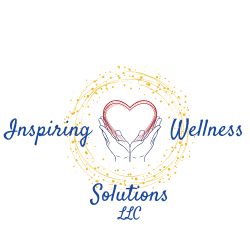
When we think about addiction, we often think about substance abuse, such as the abuse of alcohol or other drugs (prescribed or illicit) or nicotine. It is understandable our mind first travels to substance abuse due to prevalence of it in the United States. According to the National Survey on Drug Use and health, 19.7 million American adults (age 12 and older) battled a substance disorder in 2017. In addition to substance abuse, there are process addictions that also seriously afflict people’s lives. Process addictions are addictions to mood-altering behaviors such as gambling, work, shopping, sex, exercise, social media, pornography, disordered food, video game, internet/technology and eating disorders.
Addictions are disorders characterized by a compulsive behavior that provide stimuli, often imminent, despite the adverse consequences that will subsequently occur. Typically, there are psychosocial and biological factors at play. Some scholars who study addiction believe addiction is a brain disease, but other scholars dispute the brain disease model as they feel it is incomplete and misleading. What we do know conclusively is addiction can enslave the addicted person physically and psychologically and create havoc in their personal and professional lives.
Reiki’s unique and powerful healing qualities

Reiki is a centuries-old practice of warm, loving energy that heals imbalances, disturbances and illness within the body and mind. Reiki’s intelligence always goes to the root cause of the issue, and its unique and powerful healing qualities can assist in decreasing, and often ending harmful addictions by providing mental, emotional, and physical healing. The mental and emotional psychological components are the underlying source of all addictions, and need to be healed for addictions to sustainably end. Healing from addiction is possible, but if a person does not heal mentally and emotionally, it is highly probable they will resume with addictive behaviors. Reiki energy helps “pull-out” all which harms, and provides the goodness of balance, comfort, restoration of health, and healing.
Healing Guilt, Embarrassment and Shame
Guilt, Embarrassment and Shame often accompany addictions. Frequently addictive behaviors cause severe loss: loss of time, financial security, friendships, family, opportunities, and health. These losses can leave a person feeling regretful, embarrassed, and guilty. An abundance of understanding, acceptance and healing is needed to release these negative feelings, to embrace self-appreciation, learn self-love, and create self-esteem. A heart-centered, experienced Reiki Master/Practitioner can be a trusted source and safe haven for a person fighting an addiction. Providing a confidential, non-judgmental, understanding, and compassionate approach provides the client a place to rest and feel at peace. It may have been a long time since, or perhaps the first time, a client has felt unconditionally loved and accepted. Reiki energy provides warm acceptance, and deep healing. The Reiki practitioner provides patience, guidance, and comfort. A winning holistic combo that assuredly helps the addicted to heal mentally, emotionally, spiritually, and physically. We offer Reiki sessions at Inspiring Wellness Solutions.
Reiki is a gift of new and abundant life.
Reiki energy and love provide a beautiful path to a new mindset, healing, acceptance, and wholeness. The client feels hope, and for the first time in a long time (if ever) builds courage and strength to move forward, leaving the addictive behavior in the past.
Addictions can be eliminated.
Healing from addiction, life can become positively abundant through the balancing, loving Reiki energy through the hands of a compassionate Reiki Master/Practitioner.
LisaMarie Tersigni studied traditional Usui Reiki. She has treated 100’s of clients and has taught Reiki for over twenty years. She had the distinguished honor of participating as a Reiki Research Professional with the Center for Reiki Research – Harvard University.
LisaMarie is a counselor, functional wellness practitioner and Reiki Master with an array of wellness services in her portfolio. Her practice is located in downtown Troy, NY, and includes counseling, past-life regression treatments, holistic wellbeing, nutrition, weight management, Reiki treatments & education, spiritual wisdom & guidance, aromatherapy and healing. To learn more about LisaMarie: www.inspiringwellnesssolutions.com

















